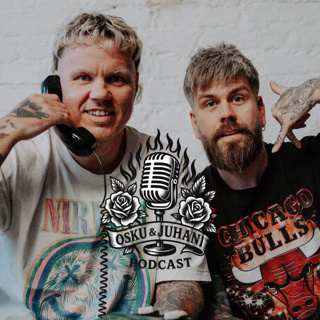
12 Things That STOP a Good Night's Sleep
Sleep has a significant impact on your health. I want to cover the top things that can prevent you from getting a good night’s sleep. There’s a direct correlation between your sleep and overall heart function and longevity. A lack of sleep can affect your blood sugar levels and increase cravings and hunger. Poor sleep can also raise your cortisol and affect your mood. The top things that prevent you from sleeping: 1. High cortisol 2. Low vitamin D 3. Low calcium 4. Low magnesium 5. Low potassium 6. A bad sleeping environment 7. Taking melatonin 8. Blue light and EMF 9. Low vitamin B12 10. Low vitamin B1 11. Low zinc 12. Stimulants Cutting out sugar and going on a low-carb diet is crucial to help you start sleeping better. Also, avoid eating too late or overeating to help support better sleep. Another great tip is to focus on your breathing to help you fall asleep fast. DATA: https://www.ncbi.nlm.nih.gov/pmc/arti... https://www.ncbi.nlm.nih.gov/pmc/arti... https://www.ncbi.nlm.nih.gov/books/NB...
15 Marras 202312min

The 7 Proven Benefits of Probiotics - Dr. Berg Explains
Let’s talk about probiotics. Probiotics are friendly bacteria in very high numbers. You have ten times more microbes than your own cells, and these microbes make up a significant part of your immune system. Friendly microbes support gut health and make bile, vitamins, and neurotransmitters. Here are seven key things you need to know about probiotics: 1. Probiotics are not just good for gut health but also for many other areas of the body. 2. Use antibiotics sparingly, and anytime you take an antibiotic, take a probiotic at the same time. 3. Try natural antibiotics, like garlic, oregano, colloidal silver, black walnut extract, tea tree oil, and cranberry. 4. Plain kefir contains diverse, friendly microbes in higher amounts than yogurt. 5. Having low stomach acid increases your risk of SIBO. Don’t consume probiotics if you have SIBO. Instead, try betaine hydrochloride, natural antibiotics, and fasting. 6. Soil-based vegetables contain good bacteria. 7. Probiotics make metabiotics, which have a lot of potential health benefits.
14 Marras 20239min

15 KETO FOODS YOU SHOULD ALWAYS HAVE IN YOUR FRIDGE: Dr. Berg Explains
Today, I’m going to cover the best keto foods to keep in your refrigerator. This will not only make keto easy but also healthy. The ketogenic diet is a low-carb diet. But that’s not enough to necessarily make it healthy. For example, if you’re on the keto diet, you could still go to a fast food restaurant without going off the plan. That’s why I like the Healthy Keto diet, which focuses on high-quality, nutrient-dense, low-carb foods. Ultra-processed foods are very quickly replacing our traditional foods. These foods have been severely altered to the point they don’t resemble food anymore. The go-to foods you should always have in your home on keto are not only low-carb, but they’re the opposite of ultra-processed. The best keto foods to keep in your home: 1. Grass-fed meats 2. Pasture-raised organic eggs 3. Soil-based vegetables and lettuce 4. Homemade salad dressings 5. Grass-fed butter 6. Grass-fed organic cheese (raw if possible) 7. Avocados 8. Organic berries 9. Wild-caught salmon, sardines, and other fatty fish 10. Shellfish 11. Organic walnuts and pecans 12. Organic Valencia peanut butter 13. Organic celery 14. Raw sauerkraut 15. Organic low-sugar bacon
13 Marras 20236min

The Myth of the Apple Cider Vinegar (ACV) "Mother"
There is a big myth about apple cider vinegar, and it has to do with the "mother." Let’s talk about it. The mother in apple cider vinegar is a combination of two things: friendly bacteria and enzymes. You can’t actually see bacteria or enzymes. This means you can’t see the true mother in apple cider vinegar. What you see at the bottom of a bottle of apple cider vinegar is the leftovers of the fermentation process. It’s just unfiltered particles from the apples or maybe fiber—there’s not necessarily enzymes or probiotics in it. When apple cider vinegar is pasteurized, the heat kills bacteria and enzymes. High pressure can also kill bacteria and enzymes. Fairchild’s is the only brand of apple cider vinegar that produces and sells their product. They produce a high-quality organic raw apple cider vinegar product. It’s also undiluted and much stronger than Bragg Apple Cider Vinegar, which is diluted with water. I don’t get anything from promoting their product, but when I find a really good product like this one, I like to share it with others. Recommended Apple Cider Vinegar: https://www.fairchildsvinegar.com/
12 Marras 20234min

Electrolyte Powder: Benefits, Uses and Purposes
I want to clear up some confusion about electrolyte powder and explain why it’s so beneficial. Electrolytes are electrically charged minerals. One of the main purposes of electrolytes is to power the nervous system, which powers the muscles and organs. Electrolytes are responsible for important functions in the body, including: • Nerve transmission • Muscle contraction • Fluid movement (hydration) • pH • Energy Electrolyte deficiency can impact the body in many different ways. Side effects of electrolyte deficiency can include: • Weakness • Fatigue • Brain fog • Dehydration • Palpitations • Dizziness • Cramps (especially at night) Top causes of electrolyte deficiency: • Consumption of refined carbs or sugar • Diuretics • Stress • MSG • Excess water consumption • Vomiting • Diarrhea • Diabetes • Sweating Generally, two types of electrolytes are available: sport and regular. My Sports Hydration Electrolytes, for example, contain a different balance of potassium and sodium than my regular Electrolyte Powder. This is because when you exercise and sweat, you need more sodium. It wouldn’t be a problem if you took my regular Electrolyte Powder while exercising, but you must take extra sea salt during the day. Sodium and potassium are two vital electrolytes for the body, and it’s crucial to have them in the correct balance. The daily requirement for potassium is 4700 mg, which can be challenging to get from the diet alone. You need to consume at least seven to ten cups of salad daily to get the potassium you need. This is why many people choose to enhance their diet with electrolyte powder. If we look closer at different electrolyte powders, mine has more potassium and sodium by far. Other top brands only contain three electrolytes and insane amounts of sugar. Compared to Dr. Berg Sports Hydration Electrolytes, which contain five electrolytes in much higher amounts, with trace minerals and zero sugar. It has organic stevia, natural flavoring, and no hidden maltodextrin.
11 Marras 202313min

Costochondritis (RIB CAGE PAIN) is NOT What You Think - Dr. Berg
Today, I want to cover the different causes and remedies for rib pain or costochondritis. The first symptom of costochondritis is chest pain. So, it can sometimes be mistaken as a heart problem. The typical treatments for costochondritis are medications, steroids, or injections. The cause of costochondritis is considered unknown. However, from my experience, I think there are two primary causes: 1. An old injury to the front chest cavity or an injury in the back part of your ribs or spine. 2. A vitamin D deficiency. Unilateral sports, like golf, tennis, or baseball, may also lead to this condition. If your pain is on the lower right side of your rib cage, it may be caused by a gallbladder issue. In my opinion, even spending a lot of time in front of a computer could lead to this condition. One of the best natural remedies for costochondritis is vitamin D. I would take 10,000 IU of vitamin D3 a day along with 100 mcg of vitamin K2 (the MK7 version). Certain stretches and exercises may also help with this condition as well as promote relaxation and sleep. The mobility stick or the massage device I created are great tools to help with these stretches. Mobility Stick Website: https://stickmobility.com/ DATA: https://www.hindawi.com/journals/crim...
10 Marras 202311min

Surprising Reasons for High Blood Sugar Despite LOW Dietary Sugars
Consuming the wrong diet isn’t the only cause of high blood sugar. If you don’t know what’s causing your high blood sugar levels, you need to check this out.
9 Marras 20238min

The 7 Intermittent Fasting Mistakes that Most People Make
Try these tips to avoid the biggest intermittent fasting mistakes and boost your success on your health journey. There are seven big mistakes people make when they start intermittent fasting. Today, I’m going to cover what they are and how to avoid them. The biggest intermittent fasting mistakes: 1. Eating too much of the wrong foods when not fasting, like peanut butter, almond flour, and keto bars or desserts • Consume organic Valencia peanut butter. • Consume celery with your peanut butter. • Consume other types of nuts. • Include healthy, high-quality foods in your diet, like meats, eggs, fish, and vegetables. 2. Not doing keto and intermittent fasting together • Doing keto and intermittent fasting together will make fasting easier and boost your results. 3. Doing low-result patterns of fasting • Choose a pattern that includes one to two meals a day with no snacks between your meals. • Try to go as long as you can before you have your first meal. • Try to make your eating window only two to four hours and your fasting period at least 20. 4. Stuffing yourself • Your body consumes your own fat when you’re not eating food. • Don’t worry about how many calories you need to consume. Instead, just think about what you feel comfortable eating in your meal. 5. Not taking B vitamins and electrolytes • Your body demands more B vitamins and electrolytes when you’re fasting. • Get B vitamins from a natural source like nutritional yeast. • Consume a high-quality electrolyte product with high amounts of potassium and no hidden maltodextrin. 6. Not doing the healthy version of the keto diet • Avoid dirty keto and do Healthy Keto® instead. 7. Stopping if they plateau • You may lose more weight at first because it’s water weight. After you lose water weight, your weight loss may slow, but you’re burning fat—this is normal. • There are things you can do to speed up the process, like fasting longer, cutting your carbs lower, doing periodic prolonged fasting, exercising, sleeping longer, reducing stress, and taking berberine or cinnamon.
8 Marras 202311min





















